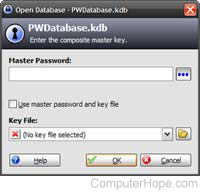What to do if you're a victim of identity theft

There are thousands of identity theft victims every day. Thieves utilize multiple tactics, including social engineering and hacking, to steal personal information. If you know a victim of identity theft or are a victim yourself, it's a scary situation, often inducing panic and a feeling of uncertainty.
However, there are multiple steps you can take to help reduce any potential damage to your identity and financial well-being. We recommend reviewing each section below to maximize your fighting power against identity thieves and strengthen your security options.
Freeze your credit

Your credit is the gateway to getting a new credit card, bank loan, and non-prepaid cellular phone service. If your identity is stolen, thieves often try to open credit cards, loans, and sometimes cell phones in your name. The best way to stop them, thwarting their attempts to impersonate and steal from you, is to freeze your credit. Three bureaus (Equifax, Experian, TransUnion) monitor and manage your credit, and you must contact each of them. That said, the freezing service is free and can be implemented online.
We strongly recommend freezing your credit in general, even if you are not an identity theft victim. Doing so is an excellent proactive measure to protect your identity and financial well-being.
When freezing your credit make sure the word "freeze" is used and not terms like "lock" or "pause" which a company may attempt to sell you as a service. Freeze is a legal term and is something offered for free.
To freeze your credit, visit each site below, create a free account, and follow the prompts.
To get a new credit card, apply for a loan, or engage in other activities that require a credit check, you must unfreeze your credit first. Make sure to unfreeze your credit with all three credit bureaus. If you don't, credit checks fail because third-party companies are blocked from viewing your credit. In the past, companies may have charged to unfreeze an account, but federal law now requires this to be free.
Submit banking fraud and security alerts

Identity thieves' main goal is to steal money from you. Your bank account is a primary target, making it important to protect. Two actions help keep identity thieves from stealing your hard-earned money.
File a security alert
To prevent identity thieves from creating a bank account in your name, file a security alert with ChexSystems. When banks receive new account requests, they refer to ChexSystems for an extra identity verification check. By filing a security alert, ChexSystems alerts financial institutions of fraudulent attempts in your name, resulting in extra measures taken to confirm the requester's identity. If the account creation is deemed fraudulent, the financial institution blocks the attempt.
To proceed, click the link below, create a free account, and file a security alert.
Add a fraud alert
Some identity thieves may attempt to contact your bank, pretend to be you, and steal your money. To prevent that type of theft, go to your bank, explain your situation to an employee, and ask them to add an account fraud alert. Furthermore, request that cash withdrawals or transfers only be allowed in person. Doing so prevents identity thieves from trying to take money from your bank account by phone or online.
Reset online account passwords

Identity thieves may have some of your online account credentials, including social media, banking, and online shopping, and you must change the password for all your accounts. If you have many accounts and don't know where to begin, start with the ones that could impact your finances. Anything relating to banking, financial loans, and online shopping are prime targets for identity thieves. Changing your password for these types of online accounts helps protect you. The second type of account is any e-mail account you may have used to register your online accounts. If a bad actor can get into your e-mail account they can reset other accounts. Next, focus on are those related to social media, like Facebook, Instagram, and X (formerly Twitter).
When changing your passwords, we strongly recommend using a long password with lowercase and uppercase letters, numbers, and special characters to increase the complexity. A common concern is remembering passwords, especially when using complex ones. However, using less complex password or similar passwords for multiple accounts significantly increases the risk of unauthorized access.
Need help remembering all your passwords?

An excellent solution is to use a password manager, software that stores all your online account passwords for you. Many of these programs can also generate passwords with random letters, numbers, and special characters. Most importantly, a password manager lets you use a different, complex password with each online account, and not have to worry about remembering all of them.
There are many password managers available online, including free and paid services. The following are several password managers with free versions that we recommend:
Change secret questions and answers

When used, secret questions and answers help users prove their identity if they need to recover an account, reset its password, or make other security-related changes. For these reasons, identity thieves try to get information from their victims to use as answers to secret questions. Commonly used secret questions include the following:
- What is your mother's maiden name?
- In what city were you born?
- What is the street name where you grew up?
- What was the name of your elementary school?
- What is the name of your first pet?
- What was the make or model of your first vehicle?
- Where did you meet your spouse?
While potentially more difficult, we strongly recommend changing the secret questions and answers for any online accounts that utilize them. If you cannot remember the accounts where you selected secret questions, check these types of accounts:
- Banking (checking & savings accounts)
- Credit card (Capital One, Chase, Discover)
- Financial loans (home equity, mortgage, vehicle)
- Investments (Charles Schwab, Fidelity, Vanguard)
- Online payment services (Apple Pay, PayPal, Venmo)
- Online shopping (Amazon.com, Best Buy, eBay)
Access your accounts, review the security options and settings, and, if available, change your secret questions. Select or create more obscure questions with answers that are less likely to be guessed. If possible, choose different secret questions for each of your accounts.
Get and utilize identity protection

Identity protection services monitor personal information and online accounts, providing early warning if personal information is stolen. Some identity protection services also provide an identity consultant, someone to talk to for advice on fixing any damage caused by identity thieves.
While not free, identity protection is important. With new technologies and social engineering tactics being utilized, identity thieves are increasingly successful and destroying the lives of more people every day. Having identity protection is one of the best ways to reduce the chance of becoming the next victim of identity theft.
Requesting a copy of your credit report
If you suspect someone of attempting to register a credit card or want to verify your credit report is clean, get a free credit report. See annualcreditreport.com for further information about getting a free credit report every 12 months or call 1-877-322-8228.
Report identity theft
To report identity theft and for additional help with stopping identity thieves from misusing personal information, visit the FTC (Federal Trade Commission) website below.
